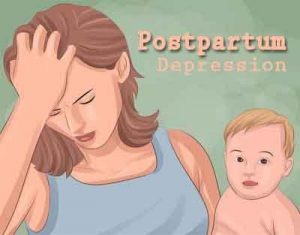- Home
- Editorial
- News
- Practice Guidelines
- Anesthesiology Guidelines
- Cancer Guidelines
- Cardiac Sciences Guidelines
- Critical Care Guidelines
- Dentistry Guidelines
- Dermatology Guidelines
- Diabetes and Endo Guidelines
- Diagnostics Guidelines
- ENT Guidelines
- Featured Practice Guidelines
- Gastroenterology Guidelines
- Geriatrics Guidelines
- Medicine Guidelines
- Nephrology Guidelines
- Neurosciences Guidelines
- Obs and Gynae Guidelines
- Ophthalmology Guidelines
- Orthopaedics Guidelines
- Paediatrics Guidelines
- Psychiatry Guidelines
- Pulmonology Guidelines
- Radiology Guidelines
- Surgery Guidelines
- Urology Guidelines
Easing labor pain may help reduce postpartum depression in some women

Epidural anesthesia may do more than relieve pain during labor; in some women it may decrease the likelihood of postpartum depression, suggests a preliminary study presented at the Anesthesiology® 2016 annual meeting.
"Labor pain matters more than just for the birth experience. It may be psychologically harmful for some women and play a significant role in the development of postpartum depression," said Grace Lim, M.D., director of obstetric anesthesiology at Magee Women's Hospital of the University of Pittsburgh Medical Center and lead investigator on the study. "We found that certain women who experience good pain relief from epidural analgesia are less likely to exhibit depressive symptoms in the postpartum period."
The researchers controlled for factors already known to increase the risk for postpartum depression, including pre existing depression and anxiety, as well as post-delivery pain caused by tissue trauma during childbirth. After accounting for these factors, the study found that in some women, labor pain was still a significant risk factor for postpartum depression symptoms. And therefore, alleviating this pain might help reduce the risk for postpartum depression.
In the study, researchers reviewed the medical records of 201 women who used epidural analgesia and had their pain assessed using a 0-10 scale during labor. They calculated the percent improvement in pain (PIP) throughout labor after the implementation of epidural analgesia. Depression risk was assessed using the Edinburgh Postnatal Depression Scale (EPDS) six weeks after childbirth. Researchers found the higher the PIP scores, the lower the EPDS scores.
"Although we found an association between women who experience less pain during labor and lower risk for postpartum depression, we do not know if effective pain control with epidural analgesia will assure avoidance of the condition," said Dr. Lim. "Postpartum depression can develop from a number of things including hormonal changes, psychological adjustment to motherhood, social support, and a history of psychiatric disorders."
Labor pain may be more problematic for some women than others, the authors note. Additional research is needed to identify which women are more likely to experience severe labor pain and who would benefit the most from effective labor pain-control strategies to help reduce the risk and impact of pain on postpartum recovery.

Disclaimer: This site is primarily intended for healthcare professionals. Any content/information on this website does not replace the advice of medical and/or health professionals and should not be construed as medical/diagnostic advice/endorsement or prescription. Use of this site is subject to our terms of use, privacy policy, advertisement policy. © 2020 Minerva Medical Treatment Pvt Ltd